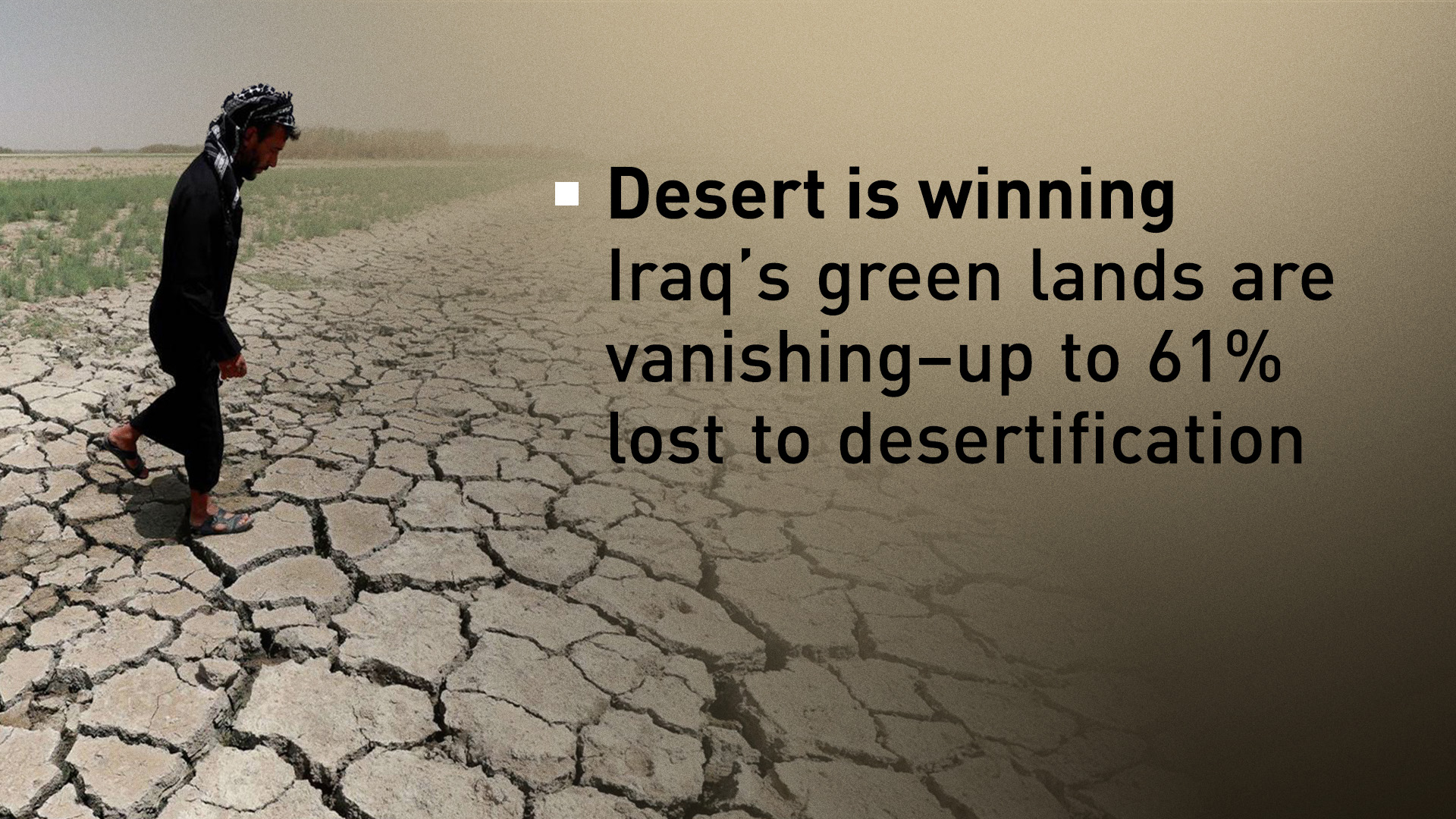Expert: Iraqi Government Responsible for Worsening Water Crisis
An expert blames Iraq's government for the water crisis, citing poor management. The crisis fuels extreme heat, desertification, and mass displacement, even as the government and UNICEF announce projects to protect water resources.

ERBIL (Kurdistan24) – An environmental and climate expert has squarely blamed successive Iraqi governments for the nation's devastating water scarcity and drought, arguing that a chronic lack of sound policy and strategic planning is the principal cause, even as the tangible effects of climate change, such as record-breaking heatwaves and advancing desertification, grip the country. The critique comes as international bodies and government agencies work to mitigate a crisis that has already displaced over a hundred thousand people and threatens the future of its vital agricultural sector.
Speaking to Kurdistan24 on Friday, environmental and climate expert Salih Najib provided a stark assessment of the situation. "Despite natural phenomena and climate change, Iraq does not have a sound plan for water management," he stated.
Najib underscored Iraq's heavy reliance on external water sources, noting that only 9% of its water originates within its borders. The remaining 91% flows from neighboring countries, with 80% coming from Turkey, 7% from Iran, and 4% from Syria. This dependency, he argued, is dangerously compounded by internal failures.
"The problem of climate change is worsening year by year, and its consequences are growing," Najib explained. "As a result, the rate of desertification in Iraq has expanded from 30% to 61%. At the same time, because the country lacks a robust water management system, the population is also increasing, and the low number of dams has led to a severe drought situation in the country."
To illustrate the infrastructure deficit, Najib pointed out that from its establishment to the present, Iraq has built only 22 dams. This figure pales in comparison to its neighbors, with Turkey having approximately 1,250 dams and Iran 647. The consequences, he added, include a significant decrease in green spaces and a massive internal migration crisis, noting that "due to the drought, millions of people have abandoned their areas, and thousands of Arabs have moved to the Kurdistan Region."
The expert's warnings are set against a backdrop of alarming environmental data. Just last Saturday, six Iraqi cities were listed among the 15 hottest places on Earth. A weather station in California reported that Amarah and Basra International Airport both hit 46.2 degrees Celsius, with Nasiriyah, Faw, Ali Al-Gharbi, and Samawah also recording temperatures above 44.9°C.
The United Nations has ranked Iraq as one of the countries most vulnerable to the impacts of climate change. For years, the nation has endured prolonged heatwaves, increasing desertification, frequent dust storms, and severe shortages in the historic Tigris and Euphrates rivers, whose water levels have dropped by an estimated 30% to 40%. These pressures strain the national electricity grid and threaten public health.
The environmental degradation is fueling a human catastrophe. According to the UN, Iraq loses 404 square kilometers of agricultural land annually. The Norwegian Refugee Council reported that 60 percent of farmers in Nineveh, Kirkuk, Salahaddin, and Anbar provinces have been forced to cultivate smaller areas with less water. This has led to significant displacement, with data from last September showing that 130,788 people across 12 provinces had been displaced by drought.
In response to the escalating crisis, Iraqi authorities and international partners have affirmed their commitment to action. In a joint statement on World Water Day, the General Directorate of Water and UNICEF called for immediate action to protect Iraq's water resources. Ammar Adel, Head of the National Water Team, announced that the directorate has begun implementing "strategic and vital projects," including updating water project master plans, adopting automated systems for fair water distribution, and enhancing data collection.
UNICEF's Head of Water, Sanitation, and Hygiene Program, Eng. Ali Ayoub, reaffirmed the organization's mission "to reach children in the most affected communities and ensure they have access to safe drinking water." The joint efforts aim to achieve Sustainable Development Goal 6 (Clean Water and Sanitation) and Goal 13 (Climate Action) by enhancing sustainable services and empowering communities.